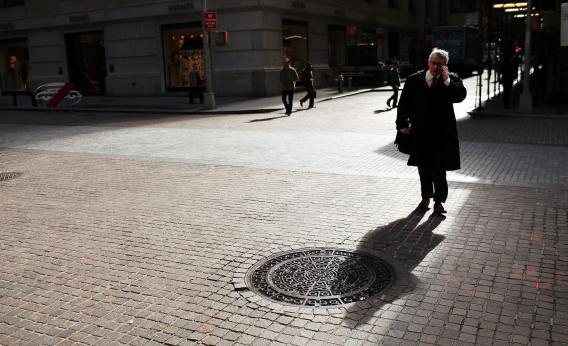Wall Street shouldn’t get too excited about the latest recovery. Helped in part by a more stable Europe, investment banks have started 2012 far better than they ended 2011. They probably raked in more revenue in all areas but M&A and buying and selling equities in the first three months of the year. But false dawns have marked each of the past two years. And even if this comeback sticks, most firms will need considerably more trading and deal-making to earn decent returns.
That isn’t to say the recent improvement can be sniffed at. Fees in the first quarter from selling new bond deals shot up a whopping 87 percent from the end of the year, according to Thomson Reuters data, as investors piled back into riskier securities like high-yield debt. Improving markets also pumped up asset prices, meaning banks should - hedges permitting - record some gains on their balance sheets.
This effect in turn spurred greater fixed-income trading revenue - average daily trading volume in U.S. high-grade debt jumped 40 percent, according to Trace data. Even compensation for arranging equity deals improved, rising 27 percent, despite a lackluster market for initial public offerings.
Everything isn’t rosy, however. Fees from completed mergers fell by a quarter, U.S. equity trading volume was 8 percent lower and banks will again have to take annoying hits to revenue because of improvements in their own liabilities. Even allowing for these, net income should be much improved. Jefferies, for example, posted a 60 percent increase in earnings on a one-third jump in revenue for the three months to February.
But it will still leave most banks almost certainly wallowing in mediocrity. Jefferies eked out only a 9.5 percent return on equity, probably below its cost of capital. And Goldman Sachs may generate a mere 11 percent return even though FICC revenue could almost treble to $3.7 billion, analysts at Credit Suisse estimate.
That’s better than in recent quarters and justifies the bank’s recent run-up toward book value. But it’s hardly stellar. With Europe fragile, restrictive regulation trickling in and a history of economic fits and starts, Wall Street still hangs in the balance.
Read more at Reuters Breakingviews.
